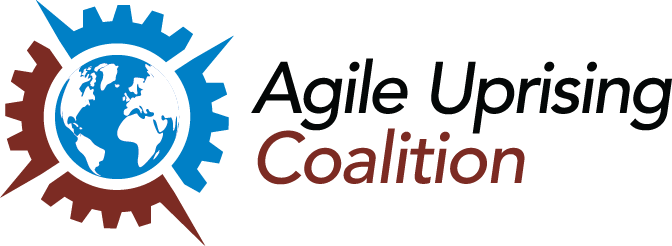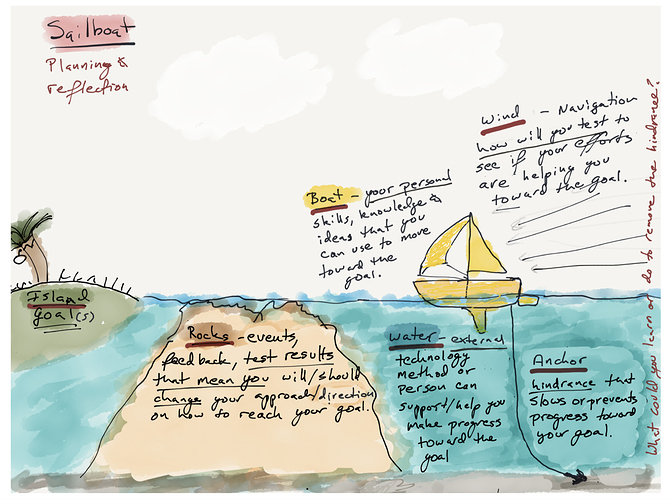Related to our
-
“How can the Agile Uprising Help You” podcast
http://agileuprising.libsyn.com/interested-in-doing-more-the-agile-uprising-can-help-you-with-that -
and coalition topic Interested in Doing More? The Agile Uprising Can Help You With That…
… Bill Tihen emailed the AU, and I’m reposting here, with Bill’s permission, to engage our community, and see where things go…
From: Bill Tihen btihen@gmail.com
Subject: Educational Agility
Message Body:
You mentioned you are interested in helping people bring Agile to life in your podcast this week.
I worked for years in Education as both a teacher and as a Tech at schools.
I had a unique (perhaps engineering inspired way of teaching), but was often hard to bring to schools with its very top-down - big plans approach.
In the last few years I worked with a school admin Paul Magnuson (pmagnuson@las.ch) to bring engagement, growth-mindset and a try and reflect (agile / retrospective) approach to class. I was teaching and Paul was enabling the environment.
We can send you several print articles we written (no blogs - that can be a bit dicy at schools). In any case, its fair to say that we would be delighted to help bring Educational reform with the above listed principles. We would be excited to talk and see how we could get help and expand. Paul is more of the writer / get it out there - I am more of the classroom - do it guy.
Thanks for an interesting podcast.
–
Yes, yes, yes!!!
Send those printed articles our way.
And then we’ll figure out next steps.
Andy Cleff
---- Bill’s Reply ----
I hope the following gives you a flavor of our approach.
I am not sure what the best ways to engage with Agile Uprising is (and if we are ‘Agile’ enough), I personally feel like it is important to keep the education in the forefront and use agile tools to that end, not the reverse.
In my mind, the hardest part is that schools are pretty badly setup for allowing autonomy and engagement.
I have focused on:
- Engagement - getting kids to buy into a story (within the scope of the class) & they choose a goal that fits the class requirements and is within the mission of their story (organization). I always ensure that the target end state requires a compromise (where 2 things can’t be perfect - so that they have to live with imperfection, learn to compromise and understand the topic well enough to sensibly resolve and dilemma). That usually requires a very good (functional) understanding of the topic.
- I have them work in small increments (little iterations), we focus on what is going well and how to ‘steer’ to keep it going well (daily mini-retrospects at the end of each class) - kids need practice with ‘smallifying’ and ‘reflection’ - normal school is about being corrected and getting it right and often being told externally how to get there.
- kids must demo their work - regularly and must get ideas from other groups (in the beginning I also supervise and have a framework for demos and feedback - kids haven’t much practice in that area of helpful, contructive feedback). They are not graded my me - I try vary hard to do pass / fail and they present to a wide audience - I try to do presentation before a big percent of the school and they take public ownership of their work and learning.
Paul is also doing an innovative program next year - along those lines.
Here’s a little Interview we had with scrum alliance: https://www.youtube.com/watch?v=cV8UQvNcN9s
One article is in Draft - but I’ll send it anyway (spotlight). Spotlight is the most recent.
Here is an article that was in the European Council of International Schools (Designed to Float your Boat) - the kids in this class were middle school and only had about 6 weeks - 3 Tims a week!
GlobalInsights6-DesignedToFloatYourBoat.pdf (3.6 MB)
If you don’t want the entire magazine (here is the draft we submitted) - with a less catchy title:
3D Nautical Design.pdf (995.8 KB)
Here is the Academic Book we have a chapter in the book (page 115) - (PLEASE only use it for learning about us and do not distribute or publish without the publisher’s consent).
https://drive.google.com/open?id=1vzGwiqr4yTtbQ1M3evyDM7Ei9IGeyEHm
Here is what we listed as core:
1.2 The Core of Agile in Education
These are our values, the core of the mindset we are working toward
- EXPLORATION—Exploration and play over tests and perfection;
- GROWTH—Growth and rework over assessment reports without corresponding mechanisms to improve identified weaknesses;
- SELF-REGULATION—Student-driven reflection and improvement over teacher directives; and
- LIFE WORTHY LEARNING—Learning that supports additional learning overdetailed course content.
Here is the retrospective guide I like to use with kids (I kind of wish business bosses also had discussions with employees using this type of approach). I find a lot of bosses - even in tech still like the corrective - judging approach (maybe that is why schools should stay the same and get people ready for the old-school managers 
In any case if any of this interesting - Paul and I would be glad to figure out synergies.
Thanks for your response.
Bill

